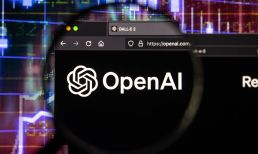As one of the first fully digital banks to launch in the U.K., Starling had to build its entire tech stack from the ground up, a process that took three years before the launch of the first Starling account, and has continued ever since.
Starling is considered especially strong in the fields of cloud banking and open banking. In fact, the company’s emphasis on engineering and technology development has led Starling founder and CEO Anne Boden to state that the neobank “will be an international global tech company, that just happens to be a bank.”
With all that engineering and technical acumen, Starling has forged various partnerships over the years that allow third parties to leverage its technology. Away from Starling’s consumer and business account business, it has cultivated an increasingly important side hustle selling its technology and knowledge to the likes of Raisin Bank and the U.K.’s Department for Work and Pensions.
The alternative revenue stream generated from Starling’s Banking-as-a-Service (BaaS) business has become important enough that in February, the challenger bank registered a dedicated BaaS subsidiary, known as Engine by Starling.
But what exactly is Engine, and who is it for? PYMNTS takes a look at five key things to know about Engine by Starling.
Advertisement: Scroll to Continue
1. It builds on Starling’s own technology
Businesses that deploy Engine will be able to use the same technology used by Starling Bank itself.
From digital onboarding and identity verification to card issuance and management, Engine is designed as a “bank in a box” that will help financial service providers build tools and apps rapidly. That’s because Starling has already spent years developing the features and has now bundled them into a ready-to-use toolkit for a range of banking and payment processing applications.
2. It’s designed to be mobile-first
One of the problems Starling is looking to solve with Engine is the fact that many financial institutions just don’t have the necessary expertise to create their own mobile apps in-house.
There is currently only a limited and highly sought-after pool of developers with experience in the complex field of mobile banking, which, in the grand scheme of things, is still a relatively new phenomenon. After all, it was only in 2011 that the U.K. got its first app-store banking apps.
Engine is designed for the rapid deployment of mobile banking features while being flexible enough to be used for a range of applications. For example, it is fully cloud-agnostic, meaning that developers using Engine still get to choose their preferred cloud provider.
In fact, in the landscape of contemporary mobile development, cloud technology is increasingly critical. Google Cloud, Amazon Web Services and Microsoft Azure, as well as a number of smaller cloud tech players, are all deployed in often complex configurations, making interoperability between systems and standards more important than ever.
3. It’s fully modular
With Engine, Starling has pursued a modular approach that makes the platform suitable for developers either looking to build a product from scratch or those looking to add new features to an existing app.
Modularity gives Engine users greater flexibility to pick and choose components without being forced to run their entire system on top of the Engine platform.
A cloud-based, open API framework lends itself to customization and interoperability between modules that deploy divergent standards, languages and database types.
The modular approach is also valuable when it comes to migrating an existing product to the Engine platform. Rather than having to freeze service while the entire app architecture is disassembled and reassembled within the Engine environment, developers can transition services unit by unit without interrupting the way the entire application runs.
4. Starling sees the U.S. as key market for Engine
At the recent Money2020 conference in Amsterdam, Boden said that although Starling had built the proof of concept for Engine in the U.K., it was more likely to sell its tech to players in the U.S. market, where Starling doesn’t have a presence.
She said the bank didn’t want local competitors to “access the Starling magic,” suggesting that the company would prefer to deliver its BaaS solution to clients operating in other markets.
In a recent webinar, Sam Everington, the CEO of Engine, said that Starling’s strategic emphasis of BaaS is related to the fact that international growth as a bank requires getting the right licenses, which can be expensive.
“We don’t plan to follow the Revolut path of going after licenses in 50 different countries,” he said. “It’s very costly, it’s very capital intensive, it’s time-consuming, and you’ve got to build that brand and that trust and that recognition.”
5. Withdrawal of EU Banking License Shifts Focus To Expanding Engine
This week, PYMNTS reported that Starling was withdrawing its application for a license from the Irish Central Bank and will instead turn its attention to promoting Engine by Starling, as well as move into new areas of lending.
Read more: UK FinTech Starling Scuttles EU Banking License
The company said it hasn’t given up on expanding across Europe, but that it now sees that route via software deals with other lenders. “Ultimately, we felt that an Irish subsidiary would not deliver the added value we are seeking,” Boden said in a memo to employees.
“We’ll now be focusing on taking our software to banks around the globe through our Software as a Service subsidiary, Engine, and by expanding our lending across a range of asset classes, including through targeted M&A activity,” she added.
For all PYMNTS EMEA coverage, subscribe to the daily EMEA Newsletter.




